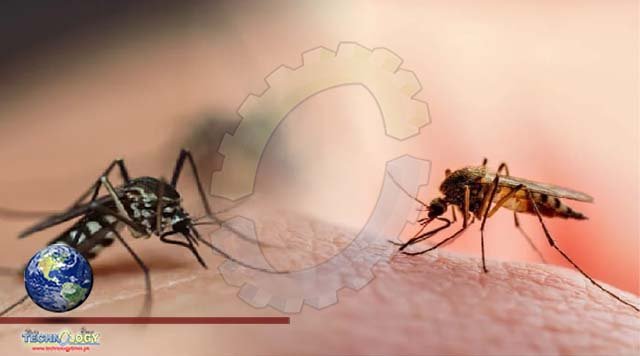The Asian tiger mosquito, a species known for carrying diseases such as dengue fever, chikungunya, and Zika, is spreading rapidly across Europe.

The Asian tiger mosquito, a species known for carrying diseases such as dengue fever, chikungunya, and Zika, is spreading rapidly across Europe. The mosquito is native to Southeast Asia, but it has been introduced to other parts of the world, including Europe, through the transportation of goods and people.
In recent years, the Asian tiger mosquito has been found in more than 20 European countries, including France, Italy, Spain, Portugal, Greece, and the Netherlands. The mosquito is particularly well-suited to urban environments, and it is likely to continue to spread as climate change makes Europe warmer and wetter.
The spread of the Asian tiger mosquitoes is a major public health concern. The mosquitoes can transmit a number of serious diseases, and it is difficult to control. In some parts of the world, the Asian tiger mosquito has been responsible for major outbreaks of dengue fever and chikungunya.
There are a number of things that can be done to prevent the spread of the Asian tiger mosquitoes. These include:
* Removing standing water from around homes and businesses
* Using insect repellent
* Wearing long sleeves and pants when outdoors
* Screening windows and doors
If you think you have been bitten by an Asian tiger mosquito, it is important to see a doctor. The doctor can provide treatment for any diseases that you may have contracted.
Experts are concerned about the spread of the Asian tiger mosquito in Europe. They warn that the mosquito could pose a major public health threat in the years to come. It is important to be aware of the risks and to take steps to protect yourself from mosquito bites.
Recent Research Reports and Studies
A number of recent research reports and studies have examined the spread of the Asian tiger mosquitoes in Europe. These studies have found that the mosquito is spreading rapidly and that it is likely to continue to spread in the coming years.
One study, published in the journal “Nature Climate Change” in 2017, found that the Asian tiger mosquito could be established in all of Europe by 2050. The study also found that the mosquito could be responsible for millions of cases of dengue fever and chikungunya in Europe each year.
Another study, published in the journal “PLOS One” in 2018, found that the Asian tiger mosquito is already established in a number of urban areas in Europe. The study also found that the mosquito is able to survive in a wide range of climates, making it difficult to control.
These studies highlight the serious public health threat posed by the Asian tiger mosquitoes. It is important to be aware of the risks and to take steps to protect yourself from mosquito bites.